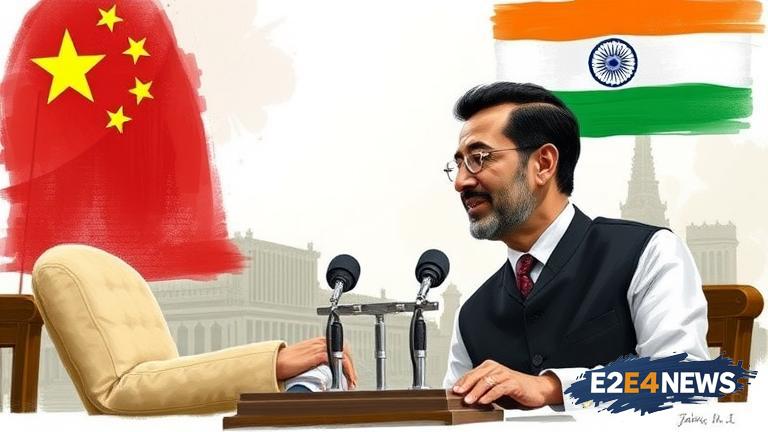The ongoing tensions between India and China have been a major concern for the Indian government, with External Affairs Minister S. Jaishankar recently emphasizing the need for de-escalation of tensions along the Line of Actual Control (LAC). Jaishankar’s statement comes amidst a backdrop of heightened military presence and skirmishes along the disputed border. The minister’s comments were made during a meeting with his Chinese counterpart, where he also raised concerns about restrictive trade practices imposed by Beijing. India has been seeking to reform these practices, which have resulted in a significant trade deficit. The Indian government has been pushing for greater market access and a more balanced trade relationship with China. However, the Chinese government has been reluctant to make concessions, citing concerns about India’s trade policies. The tensions between the two nations have been escalating since last year, with both sides accusing each other of aggression and territorial encroachment. The situation has been further complicated by the COVID-19 pandemic, which has disrupted global supply chains and exacerbated existing trade tensions. Despite these challenges, Jaishankar remains optimistic about the potential for a resolution, citing the long history of diplomatic relations between India and China. The minister has also emphasized the importance of maintaining open communication channels and engaging in constructive dialogue to resolve outstanding issues. The Indian government has been seeking to diversify its trade relationships and reduce its dependence on Chinese imports, while also promoting domestic manufacturing and exports. However, this effort has been hindered by the restrictive trade practices imposed by China, which have limited India’s access to the Chinese market. The situation has also been affected by the ongoing geopolitical tensions between the United States and China, with India seeking to navigate a delicate balance between its relationships with both nations. The Indian government has been engaging in diplomatic efforts to resolve the tensions with China, including through the use of diplomatic channels and multilateral forums. The situation remains complex and challenging, with both sides seeking to protect their national interests while also avoiding further escalation. The international community has been watching the situation closely, with many nations calling for calm and restraint. The United Nations has also urged both sides to engage in peaceful dialogue and to seek a resolution through diplomatic means. The situation has significant implications for regional and global stability, with the potential for further escalation posing a major threat to peace and security. The Indian government remains committed to finding a peaceful resolution to the tensions, while also protecting its national sovereignty and interests.
